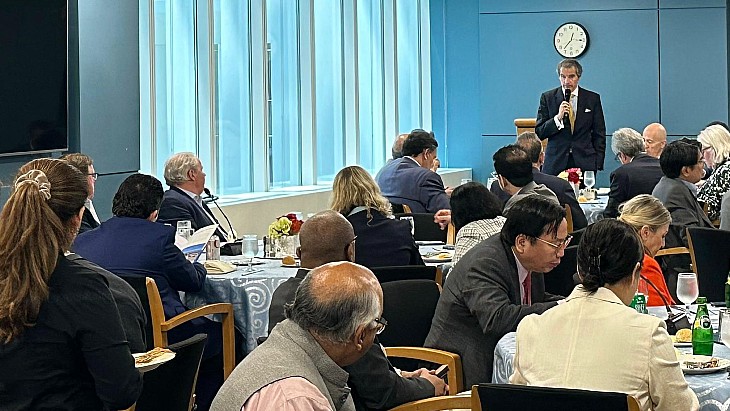In his comments to members of the World Bank board, in Washington, USA, last week, Grossi said: "From Africa to Asia, countries seeking to add nuclear to their energy mix need technical and financial support. With its technical expertise, the IAEA accompanies them throughout their nuclear journeys, helping them to establish the infrastructure for a safe, secure and sustainable nuclear power programme. But financing remains a hurdle. While the private sector will need to increasingly contribute to financing, multilateral development banks such as the World Bank can advance sustainable development by assessing nuclear project bankability and contributing lending at affordable rates."
Although some multinational development banks have provided lending for decommissioning or upgrades to existing plants, they do not contribute to the financing of new-build projects. The pledge to aim for a tripling of nuclear energy capacity, backed by more than 20 countries at COP28 in December, included inviting "shareholders of the World Bank, international financial institutions, and regional development banks to encourage the inclusion of nuclear energy in their organisations’ energy lending policies as needed, and to actively support nuclear power when they have such a mandate, and encourage regional bodies that have the mandate to do so to consider providing financial support to nuclear energy".
The International Energy Agency says nuclear energy capacity should more than double by 2050 to meet climate targets, and the IAEA has estimated that doing so would mean more than doubling annual investment in nuclear power to USD100 billion.
Discussing the issue with the members of the World Bank board, Grossi said that the IAEA "stands ready" to provide any technical assistance required by multinational lenders in relation to nuclear infrastructure development, nuclear safety, security and safeguards.
The IAEA says there are about 30 countries considering or embarking on nuclear power, with about two-thirds of them in the developing world and financing remains a major hurdle for many.















